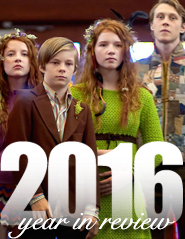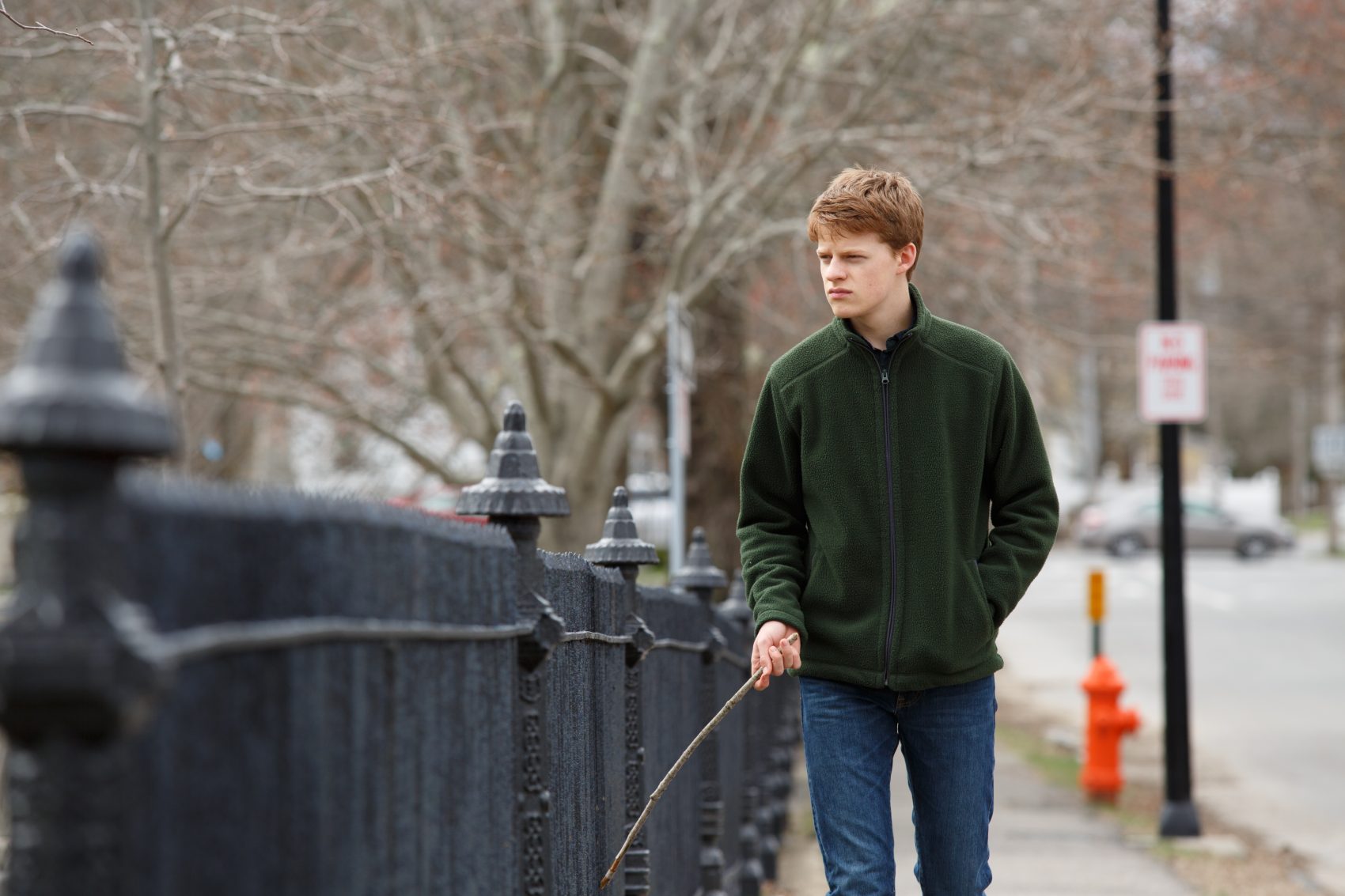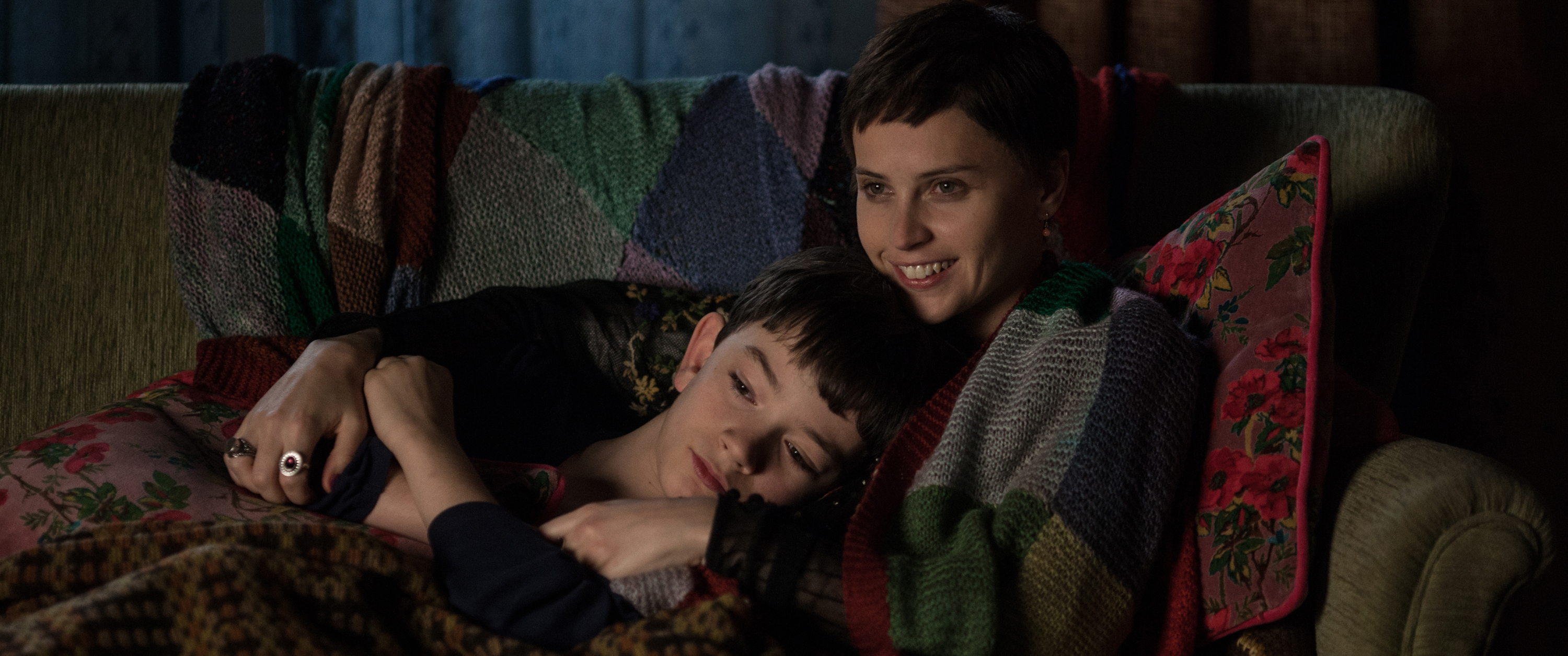On Loss and Letting Go in 2016
 Wednesday, December 21, 2016 at 8:00PM
Wednesday, December 21, 2016 at 8:00PM
 Year in Review. Every afternoon, a new wrap-up. Today Steven Fenton on grief at the movies...
Year in Review. Every afternoon, a new wrap-up. Today Steven Fenton on grief at the movies...
The loss of a parent is one of life’s great tragedies. As long as humans have been telling stories, they have reflected on the trauma of this loss. It’s one of few facets of life that almost every person will experience. So it’s no surprise that we, as a society, have explored this grief across generations and media, from ancient epics to pop songs. We’ve turned the subject over in our hearts and minds, examining it from every angle. The threat of losing a parent is a concept and anxiety we’re actually raised with --children are introduced to countless stories featuring orphaned heroes who find strength in their loss, and transform their pain into triumph.
2016 was a tumultuous year for many of us, and our on screen avatars suffered as well. My mother passed away in January, and shortly after that, I watched as House of Cards’ Claire Underwood and Veep’s Selena Meyer lost their mothers in remarkably similar ways (played to very different effect)...
At the movies, Captain Fantastic’s Ben Cash (Viggo Mortenson) had to tell his menagerie of children their mother wouldn’t be coming home, and in Hell or High Water the specter of a departed mother hangs heavy over the lives and choices of two wayward sons. It’s a common motif - you can point to a dozen examples (at least) from any given year, but it’s still potent in the hands of powerful storytellers.
This year, I noticed a one subset of this genre boldy emerge from the pack, the adolescent boy losing a parent - that’s not to say this isn’t oft-treaded territory, but there’s something unique about the trio of Kubo and the Two Strings, Manchester by the Sea, and A Monster Calls.

Kubo and the Two Strings is a magical, transporting tale about a young boy who grows up in the shadow of his lost father. Kubo has known no other life than the one he shares with his mother, caring for her in her fragile emotional and physical state. He never begrudges her, or the obligation he feels to her, but nevertheless the pressures of being his mother’s caretaker begin to mount. Kubo is a remarkably mature young boy. We only ever see the pressure crack through his cool exterior when, desperate to see his father’s spirit, Kubo rails against his memorial stone, pleading for help.
Of course, what Kubo doesn’t know is that his father hasn’t died, and he is unknowingly reunited with his parents who assist him on his mystical journey. Sadly, Kubo and his parents aren’t able to connect the dots to savor this opportunity, and they die protecting him. It’s an impossibly sad realization, to have been so close to having the family he so desperately wanted, only to have it taken away. But Kubo, having absorbed the wise lessons of his brave parents, understands anger would be a waste of his energy. He channels their love and their knowledge into his magic and finds within himself the power to defeat the villainous Moon King.

Manchester by the Sea captures a unique perspective on grief, examining how the timing of a loss can affect us in different ways. Manchester follows the story of Lee Chandler whose brother, Joe dies from complications from COPD, leaving his teen son Patrick in Lee’s care. Patrick (the phenomenal Lucas Hedges), is, without a doubt, a successful teenage boy. He’s an athlete, musician, and all-around stud; and as a high schooler, that’s as full and fulfilling as a life can get. When his Uncle Lee informs him his father has died, Patrick takes it in stride. He barely seems rattled by the news, and quickly turns his attention to maintaining normalcy. It’s almost unnerving to witness him continuing to move forward without pause in the face of such profound loss.
It’s not until the topic of burial comes up that the reality of Joe’s death descends upon Patrick. It’s deep winter in Massachusetts when Joe dies, which means the ground is impossible to dig into, so the mortician suggests holding the body in cold storage until they can inter him. Late one night, Lee finds Patrick struggling with items in the freezer at home, terrified by the prospect that his father may be locked up in one. Patrick’s disbelief and devastation finally rise to the surface in a gut-wrenching scene that will resonate with anyone who has lost a parent. The sudden, stark realization that your parent’s life has ended, and you find yourself in new, uncharted territory without their guiding hand. The world has dropped out from underneath Patrick, the world he thought he had mastered, and the pain of that discovery is shattering.

J.A. Bayona’s extraordinary vision, A Monster Calls, grapples with the emotionally draining process of watching someone you love fade away. Conor (Lewis MacDougall), like Kubo, has found himself in the role of caretaker for his ailing mother. They have a beautiful relationship as mother and son, but also seem to genuinely like and respect each other. The depth of their bond only makes their impending separation more grievous; Conor, an otherwise lonely child, will not only lose his mother, but his best friend too.
More than Kubo or Patrick, we witness Conor and his family preparing for the life to come after his mother is gone. A mysterious and magical creature visits Conor and prods him to feel his feelings visits. The monster recounts three tales about the difficult choices we must make in life. He challenges Conor with the final choice he will have to make, to agree to let his mother go. He forces Conor to see that the anger he is holding back, his frustration with the situation, and his mother, are obscuring what really matters - making the most of the short time they have left together. Acknowledging the anger that accompanies death is one of the hardest lessons to learn, and it is a revelation to see it depicted in such a nuanced and sophisticated manner.
These three films all approach grief differently, but what they have in common is that their protagonists find a certain sense of relief in acknowledging and expressing their deepest pains. Kubo, Patrick, and Conor all find comfort when they allow themselves to feel the full extent of their emotions. By unshackling and expressing their loneliness, sadness, and anger, they find a freedom that, with time, will allow them to find the (new) sense of normalcy they all crave.

Year in Review
The Ladies Who Lush
Biggest Foreign Hits of the Year
Sight & Sound's Top 20
John Waters Top 10
Highlights of the Blog by Month
88th Oscars | Feb | March | April | May | June | July | Aug | Sept | Oct | November



Reader Comments (9)
The loss of a parent (or parental figure) figures into all these other Oscar frontrunners in various categories: Moonlight, Elle, Fences, Rogue One...
Thank you for this write-up. Sorry for your loss.
Sorry for your loss. I doubt I shall ever fully recover from the single most traumatic thing in my life, losing my mother.
And I just came back from watching Jackie. WOW. And talk about losing a parent...
Sorry for your loss.
I am still not over how in two completely different movies this year (Elle and Things to Come), Isabelle Huppert lost her mother(s) in some kind of a tragic way.
We all collectively lost our hope and mind too this year...
Steven -- thanks for this great piece. Losing my dad was so surprisingly difficult (in a lot of ways we weren't close) but i still have trouble imagining losing my mother so condolescences. It is curious how these themes pop up in calendar years in movies... but as you state so well at the beginning... especially in children's movies that's a surprisingly common theme. I think maybe it's more of a metaphoric tool in your early days of being a developing human... each step of learning to be self-sufficient involves letting go of them in some way.
Steve, my condolences on the passing of your Mom. May she rest in peace.
Great article, btw.
I thought Other People dealt with death beautifully as well.
Sorry for your loss. May your mother rest in peace.
Very nice article. It is true how grief can be dealt with in numerous ways and in film, they can be portrayed in a metaphorical fashion like in Kubo and A Monster Calls.
Thanks all for your kind words and condolences.
@Nathaniel - I totally agree with your interpretation of the central metaphor at work here, and the role it serves in telling these specific stories.
@Paul - You're right, I hadn't even put that together. And I think that totally ties into Nathaniel's interpretation of the metaphors at play here.
@Paranoid - I've been intentionally avoiding Other People for obvious reasons, but at the same time also very anxious to see it! But for now I'm glad to hear it does good work.